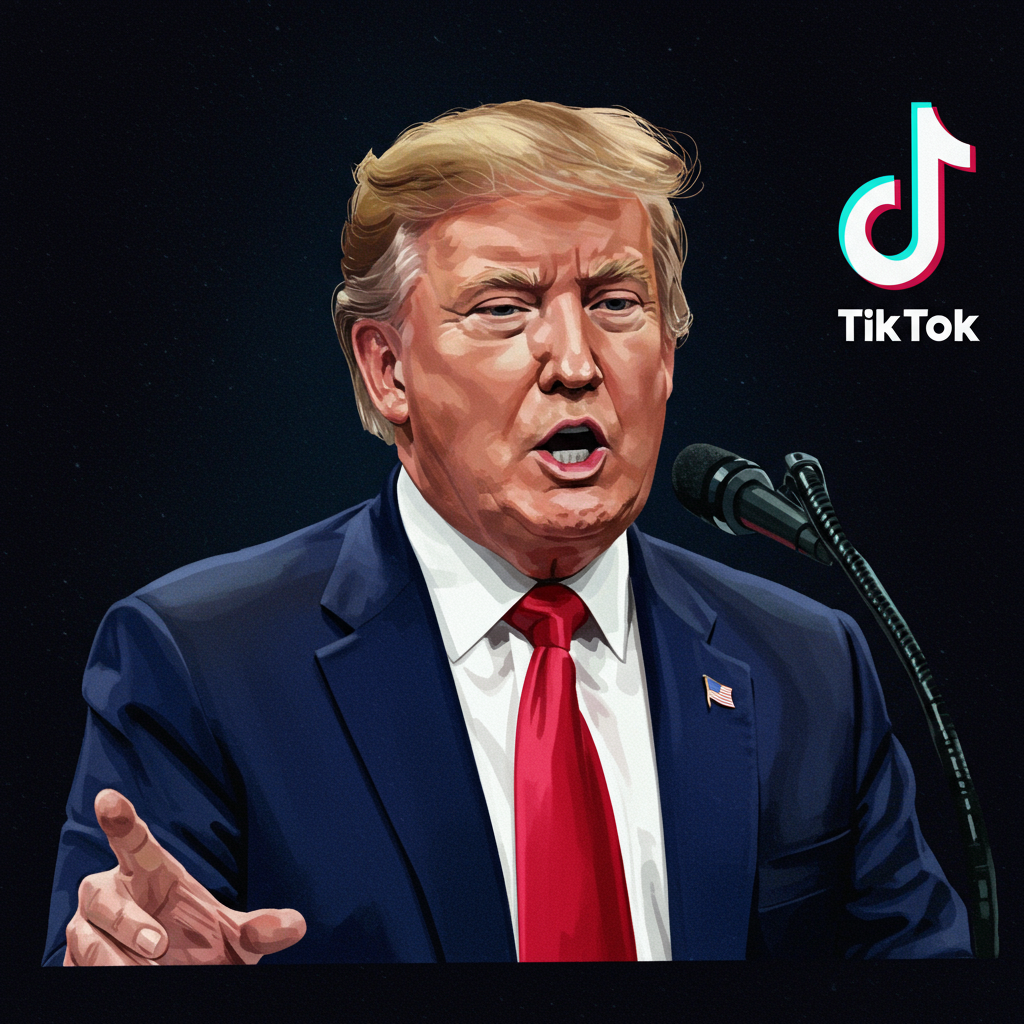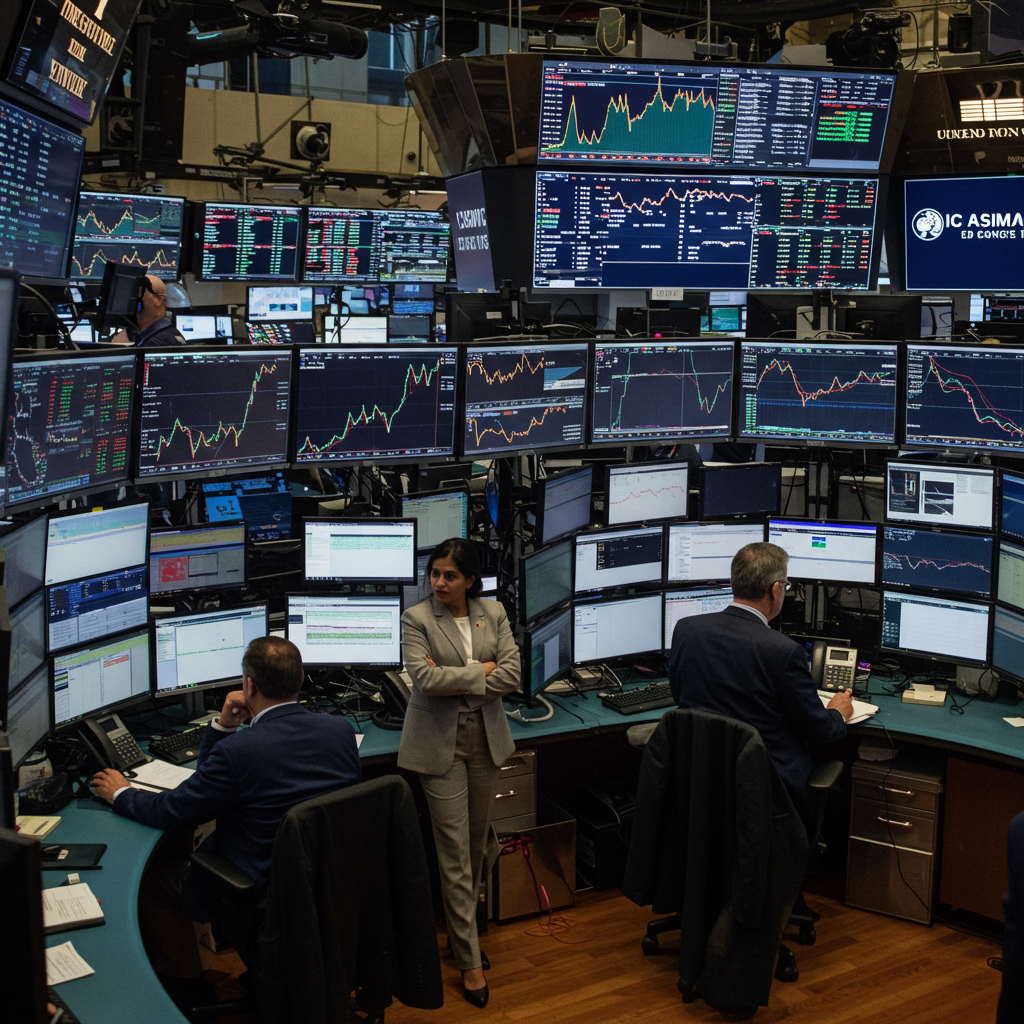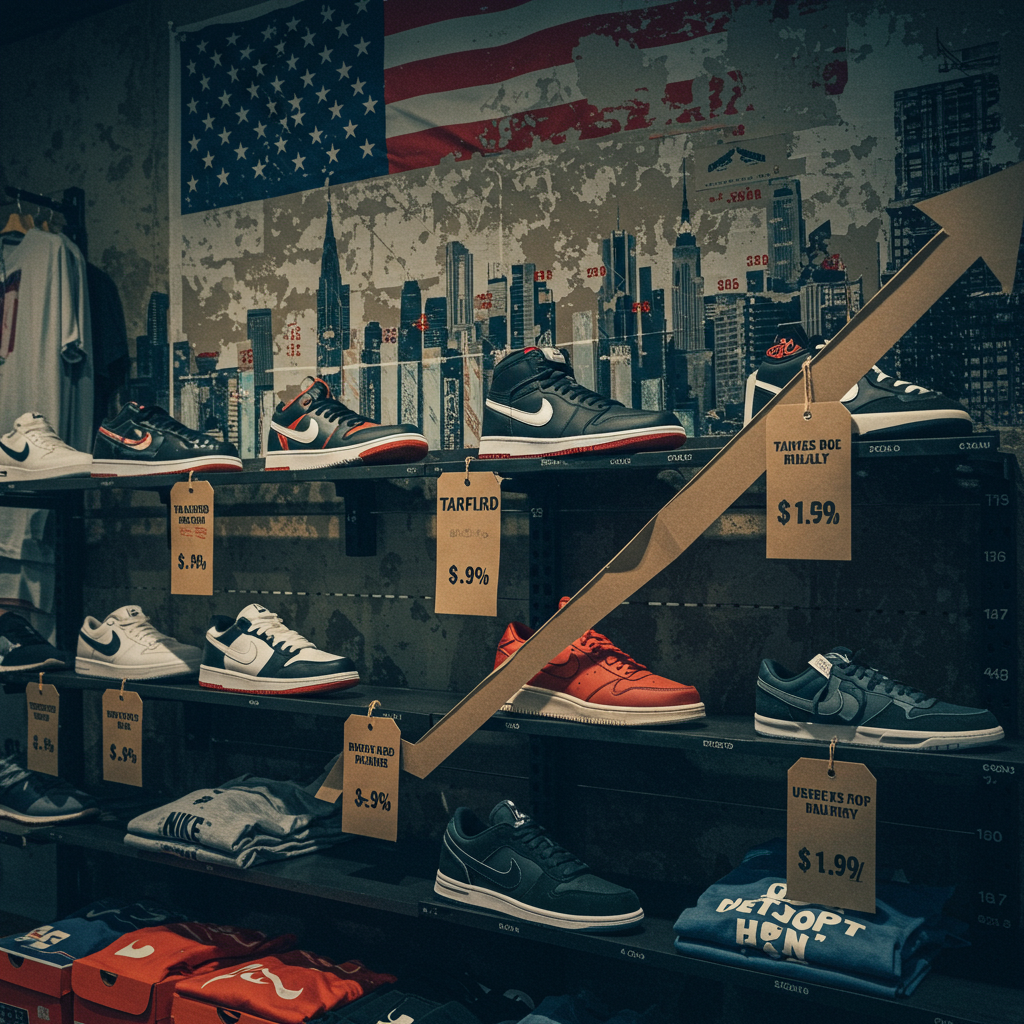Former President Donald trump announced he has identified potential buyers for the popular video-sharing application, tiktok. Speaking in a recent interview, Trump claimed a group of “very wealthy people” is prepared to acquire the platform. This declaration comes amid ongoing US regulatory pressure on TikTok, which is currently owned by the China-based company ByteDance.
The future of TikTok in the United States has been uncertain due to national security concerns. US lawmakers fear the app’s parent company could be compelled to share American user data with the Chinese government. TikTok has consistently denied these allegations. A US law passed in 2024 mandates that ByteDance must sell TikTok’s US operations or face a ban.
Trump’s Buyer Announcement
During an appearance on Fox News, Trump stated directly, “We have a buyer for TikTok, by the way.” He described the potential purchasers simply as a group of “very, very wealthy people.” When pressed for details about their identity, Trump remained tight-lipped. He teased that he would reveal more information regarding this potential buyer group within “about two weeks” from the time of his interview. This brief timeline suggests negotiations or arrangements could be nearing a critical stage.
For any sale to proceed, it would require significant hurdles to be cleared. Notably, securing approval from the Chinese government is widely considered essential. Despite potential geopolitical complexities, Trump expressed optimism about this requirement. He predicted that Chinese President Xi Jinping “will probably do it,” suggesting a belief that Beijing would greenlight the transaction.
The Mandate and Repeated Delays
The legal basis for forcing a TikTok sale stems from a US law passed in April of the previous year. This bipartisan legislation cited national security risks posed by the app’s foreign ownership. The law initially set an enforcement date of January 19, effectively mandating a sale or ban by that date.
However, President Trump has repeatedly used executive actions to delay this deadline. He has now issued a third extension for the mandated divestment. The latest executive order pushes the deadline for ByteDance to finalize a sale agreement to September 17. These delays have drawn criticism from some who see them as the administration overriding the will of congressional lawmakers who passed the original legislation.
The period around the initial January 19 deadline saw tangible impact. Following a US Supreme Court decision on January 17 affirming the divestment requirement, the app was temporarily blocked from US app stores on the evening of January 18. Millions of US users and creators lost access for a day before the app was restored after Trump issued his first executive order pausing the ban upon taking office on January 20.
An Evolving Stance on TikTok
Trump’s public position on TikTok has undergone a notable transformation. During his first term in office, he was a vocal critic of the app. He even signed an executive order in August 2020 declaring TikTok a national security threat. His administration at the time also sought to force a sale or shutdown, setting various deadlines that ultimately were not enforced under his first presidency.
However, Trump now appears to support TikTok’s continued operation in the United States. This shift is attributed, at least in part, to his belief that the platform played a role in boosting his support among young voters during the previous November’s presidential election. White House press secretary Karoline Leavitt confirmed this position, stating that President Trump “does not want TikTok to go dark” in the U.S. She added that the administration intends to use the extended deadline period to work towards closing a deal. The goal is ensuring Americans can continue using TikTok with the assurance that their data is safe and secure.
Past Attempts and Market Context
This is not the first instance of a potential deal for TikTok’s US assets being discussed. A previous significant attempt occurred in the spring. Reports indicated the White House was nearing an agreement where an American company would own a substantial portion of the app. This earlier effort aimed to spin off TikTok’s US operations into a new, domestically-based and majority-owned entity.
However, that previous deal reportedly fell through in April. Sources suggested negotiations ended following China’s signaling of disapproval. This disapproval reportedly came in response to tariffs imposed by the US government at the time. It remains unclear whether the “very wealthy people” Trump now references are the same party that was involved in this earlier, unsuccessful negotiation attempt or a completely new group of potential buyers.
The broader market for TikTok’s US operations has seen speculation. In the past, various companies have been named as potential suitors. A list compiled in April by Adweek included names like Applovin, Amazon, Oracle, Blackstone, and Andreessen Horowitz. However, none of these entities publicly confirmed being in active negotiations for a purchase. Market experts like David Arslanian of Progress Partners expressed skepticism regarding the seriousness of some earlier bids. He noted the complexity of operating only a portion of TikTok, particularly given ByteDance’s reported reluctance to sell the rights to the app’s core algorithm, which is crucial to its success.
TikTok maintains a massive presence in the US market. It boasts approximately 170 million US users and about 1 million creators. Users spend considerable time on the platform, often hours daily for younger demographics. Millions of new video clips are uploaded every day. Globally, TikTok ranks as one of the largest social networks, highlighting the scale and complexity of any potential divestment.
Legal Challenges and The Path Forward
ByteDance previously challenged the constitutionality of the US law requiring the sale. However, TikTok ultimately lost its appeal to the US Supreme Court. This legal decision left the sale mandate in place. While the app’s future ownership remains in question, the legal requirement for divestment stands, albeit with deadlines repeatedly extended through presidential executive orders.
The current situation hinges on multiple factors. Trump’s claim of a buyer must be verified by details he promises in two weeks. Crucially, securing approval from Beijing is a major hurdle. ByteDance itself must agree to the terms of any potential sale, which could be complicated by their desire to retain control over key technological assets like the algorithm. The looming September 17 deadline adds pressure. Failure to finalize a deal by that date could theoretically result in the mandated ban taking effect, though Trump’s history of granting extensions suggests the outcome remains fluid.
Frequently Asked Questions
Why does TikTok need a buyer for its US operations?
TikTok needs a buyer in the United States primarily due to national security concerns raised by US lawmakers. A US law passed in 2024 mandates that TikTok’s parent company, ByteDance, which is based in China, must divest the app’s US assets. Lawmakers fear that ByteDance could be forced to provide US user data to the Chinese government, posing a national security risk. TikTok has denied these specific allegations.
What is the timeline for the potential TikTok sale process?
The current deadline for ByteDance to finalize a sale agreement for TikTok’s US operations is September 17, 2025. This date is the result of President Trump issuing a third executive order extending the original deadline set by a US law passed in 2024. The original law mandated a sale or ban by January 19, 2025, but Trump has repeatedly delayed enforcement.
How could a TikTok sale or ban affect users and creators?
A sale or ban of TikTok could significantly impact its approximately 170 million US users and 1 million creators. While a successful sale to a US entity might allow the app to continue operating without interruption, a ban would mean the app could become inaccessible in the US. A temporary ban occurred in January 2025, which resulted in users and creators losing access until an executive order paused enforcement, highlighting the potential disruption.



